
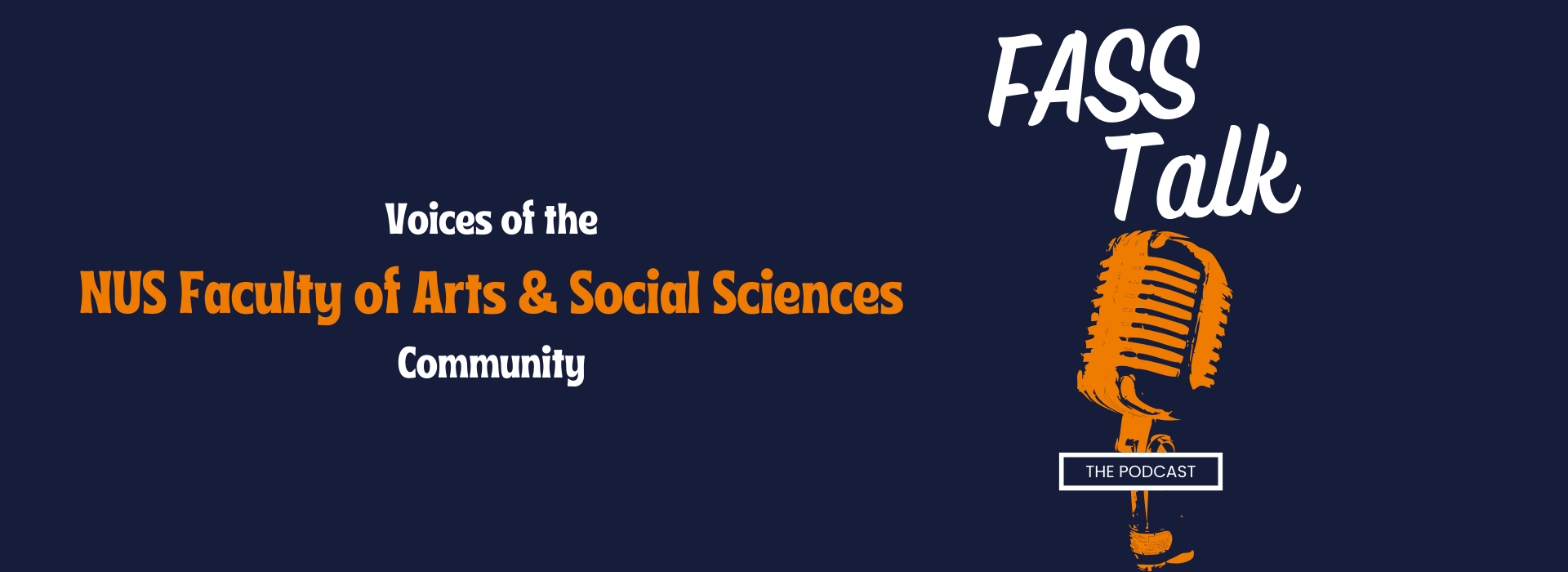
The CNM Podcast
THE CNM PODCAST | Fandom and Audiences
Dr Alex Mitchell hosts a discussion of fandom and audiences – their evolution and differing impact on society throughout history – with his fellow educators at NUS Communications and New Media, Associate Professor Zhang Weiyu (also Director of the Civic Tech Lab) and Dr Bertha Chin.
 Key Points in this Episode
Key Points in this Episode
01:00 The definition of fandom
02.20 Who studies fandom and audiences?
04:56 The present and future of fandom and fan studies
06:49 Fandom in China
07:46 Misconceptions the public may have about fans
11:48 Is fandom a new phenomenon?
14:12 The impact of technology and media on fandom
19:51 What sort of relationship do creators have with their fans?
23:37 What distinguishes fans from other audiences
About the CNM Podcast Host: Dr Alex Mitchell
Dr Alex Mitchell teaches interactive media design and his current research investigates various aspects of computer-based art and entertainment, focusing in particular on interactive stories. This work involves creating digital and non-digital interactive storytelling systems, using these systems to develop creative works, and observing how people respond to the resulting pieces. It also involves theoretical work to understand what is happening in and around this process.
THE CNM PODCAST | Risk Communication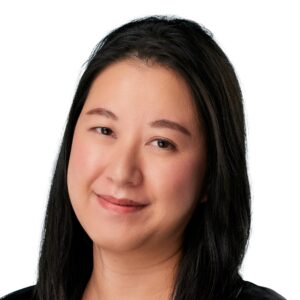 Dr. Soh Kai Ruo, Lecturer at NUS Communications and New Media (CNM), together with Assistant Professors Dr. Hong Soo Jung and Dr. Ivy Fong discuss the differences between risk and crisis communication in health and corporate communication.
Dr. Soh Kai Ruo, Lecturer at NUS Communications and New Media (CNM), together with Assistant Professors Dr. Hong Soo Jung and Dr. Ivy Fong discuss the differences between risk and crisis communication in health and corporate communication.
Key Points in this Episode
01:56 Differences between risk and crisis communication
10:09 Public perception and risk assessment
17:45 Impact of digital technologies in risk and crisis communication
27:05 Tips to manage risk and crisis communication
About the CNM Podcast host Dr Soh Kai Ruo
Dr. Soh Kai Ruo is a Lecturer at NUS Communications and New Media. Her research area is in the field of cultural diplomacy through popular culture. Drawing on her professional background in campaign and communication management, she has been developing and teaching courses in this area.
THE CNM PODCAST | Gender, Sex and the Media
Dr Shobha Avadhani, Dr Eunbi Lee and Dr Michelle Ho discuss the study of the intersection of gender and communication matters, their approaches to researching and teaching gender at NUS Communications and New Media, and share some of the insights they gain from this work.
Key Points in this Episode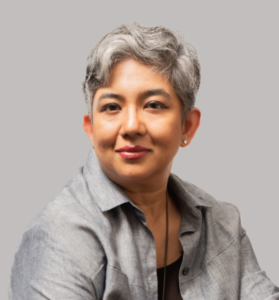 1:10 What does gender have to do with media and communication?
1:10 What does gender have to do with media and communication?
4:30 The methods and theories used in the study of gender and media and communication.
7:30 About the people who participate in Dr Lee's and Dr Ho's studies.
14:22 The unique significance and challenges of Dr Lee's and Dr Ho's work in gender, sex and media research.
18:13 Insights gained from teaching NM4244 Sex in the Media.
About THE CNM PODCAST host Dr Shobha Avadhani
Senior Lecturer Dr Shobha Avadhani teaches public speaking and various aspects of media studies at NUS Communications and New Media. With research interests in the areas of political communication, the politics of technology and education, and media literacy and citizenship, Dr Avadhani has published research on the intersection of youth, citizenship and new media: the meanings of social and mobile digital media for juvenile delinquents and youths at risk, the changing nature of democratic discourse in hybrid regimes, and the role of the Singapore school in shaping technological citizenship. Underscoring much of her research and teaching is a deep interest in gender studies, feminist theory and critical race theory.
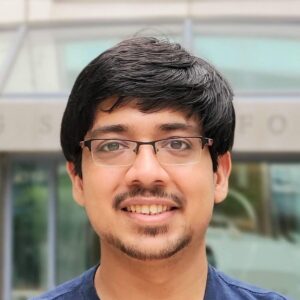 THE CNM PODCAST | Algorithmic Bias
THE CNM PODCAST | Algorithmic Bias
Assistant Professors Kokil Jaidka, Chao Yu and Subhayan Mukerjee of NUS Communications and New Media review the state of algorithmic bias today and discuss approaches to mitigating its impact on the real world.
Key Points in this Episode
01:20 The definition of algorithmic bias, the different types of algorithmic bias, and the factors that could cause or amplify algorithmic bias.
06:40 The effects of algorithmic bias – examples in the real world
15:20 Solutions for mitigating the impact of algorithmic bias
33:30 Challenges posed by algorithmic bias in the future and what our response should be
About THE CNM PODCAST host Dr Subhayan Mukerjee
Dr Subhayan Mukerjee is a computational social scientist who situates his research at the intersection of digital media and online human behaviour. His work draws from a wide repertoire of computational methods that blend observational as well as experimental approaches – such as network analysis, statistical inference, and agent-based simulations to understand how digital audiences navigate online media environments. In addition to his research, Dr Mukerjee develops and teaches quantitative and computational modules for undergraduates, and postgraduate students at CNM. He also serves as lead organiser of the Singapore chapter of the Summer Institutes in Computational Social Science - the first such chapter in South East Asia.
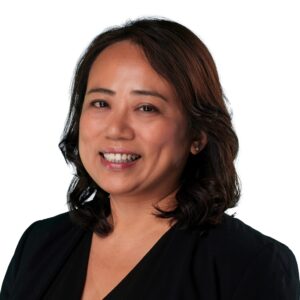 THE CNM PODCAST | The Impact of Platforms
THE CNM PODCAST | The Impact of Platforms
Platforms are ubiquitous in this age of social media, and we are increasingly reliant on them for our everyday needs. Yet, when platforms are overlaid on existing practices, they often change them in particular ways. In this episode, two researchers at NUS Communications and New Media – Assistant Professor Hong Renyi and Assistant Professor Jun Yu – explore these new changes with programme host Dr Jinna Tay.
00:00 What are platforms and why do they feature in communications research today?
11:20 What kinds of new labour practices are brought into platforms?
21:35 What does empowerment and access does platform consecutively make available and mask?
28:17 Can we offer more protection at the national or global level?
35:19 Could audiences or consumers play a role in advocating change for platform workers?
THE CNM PODCAST is a series on digital media and its influence on culture, politics and humanity, hosted by Dr Jinna Tay, Senior Lecturer at NUS Communications and New Media and Assistant Dean of Undergraduate Studies at the NUS Faculty of Arts and Social Sciences. Her research interests range from the media, arts and humanities to cultural and national identities, material and popular culture and literature, television, film and cities studies.
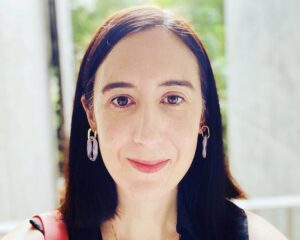 NEW SERIES! THE CNM PODCAST | Media, Culture, Politics, Humanity
NEW SERIES! THE CNM PODCAST | Media, Culture, Politics, Humanity
Dr Rosemary Overell, previously a Senior Lecturer at NUS Communications and New Media (CNM) leads a discussion – at “the intersection between media technology, computational technology and the human” – about the impact of AI tool ChatGPT on academics, research and teaching with Dr Subhayan Mukherjee (CNM) and Mr Jonathan Sim (NUS Philosophy).
Key Points in this Episode
04:00 What is ChatGPT?
07:45 Personal user experiences
09:15 ChatGPT as a “fellow classmate” to students
12:00 Enhancing academic research
15:00 Effecting change in education
20:00 Sociopolitical implications of ChatGPT
27:00 ChatGPT’s impact on human capacities
Educator Series
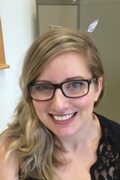 Educator: Dr Nina Laurel Powell (NUS Psychology)
Educator: Dr Nina Laurel Powell (NUS Psychology)
Dr Nina Powell has a Ph.D. in the psychology of human behaviour and decision-making (Social and Cognitive Developmental Psychology). She has more than 10 years of experience in grant and research publication writing and reviewing, and consultation for best approaches to assessing and measuring human behaviour and decision-making with respect to cognition, emotion and behaviour modification. Dr Powell is also the winner of multiple awards for her work as educator at NUS Psychology, and her accolades include a series of five Faculty Teaching Excellence Awards (2017 through 2021), Special Teaching Award for Innovation in 2018 at the NUSFaculty of Arts and Social Sciences (FASS) and a FASS Inspiring Mentor Award in 2021 (along with our host Associate Professor Robin Loon).
Key points in this episode, hosted by Associate Professor Robin Loon (NUS English, Linguistics and Theatre Studies):-
0:00 Dr Nina Powell's start as a University Educator, and her circuitous route to University Education and understanding the value of a University Education
13:55 On Moral Psychology and helping students see purpose and their capacity to influence through an education of being human.
27:37 Her belief in Human Exceptionalism and her classroom being a space of play by embracing discomfort and helping students understanding the value of what they are doing.
42.38 Making agency the focus of study and activating student agency by encouraging student to be present and through reflective assessments.
58:39 The importance of the reflective educator, and refocusing on the human through research on Artificial Intelligence and agency.
1:10:53 Wish list for the future and how the educator can contribute to advancing University Education.
Educator: Associate Professor Jasjit Singh, CSGB (Central Sikh Gurdwara Board) Visiting Chair of the Sikh Studies programme at NUS South Asian Studies
Associate Professor Jasjit Singh served as inaugural CSGB Visiting Professor in Sikh Studies from August through December 2023. He taught an undergraduate course titled "Introduction to Sikhism", and delivered guest lectures on the Sikhs for undergraduate courses such as "South Asian in Singapore" and "World Religions", as well as led research on digital Sikhism – the study of the impact of the digital online environment on the religious lives of Sikhs and specifically how Sikhs in Singapore engage online – at NUS. He also presented a workshop to the local Sikh community and a public lecture organised by the CSGB and NRaUS.
Associate Professor Singh is a Sikh Studies expert from the School of Philosophy, Religion and History of Science at the University of Leeds, Britain.
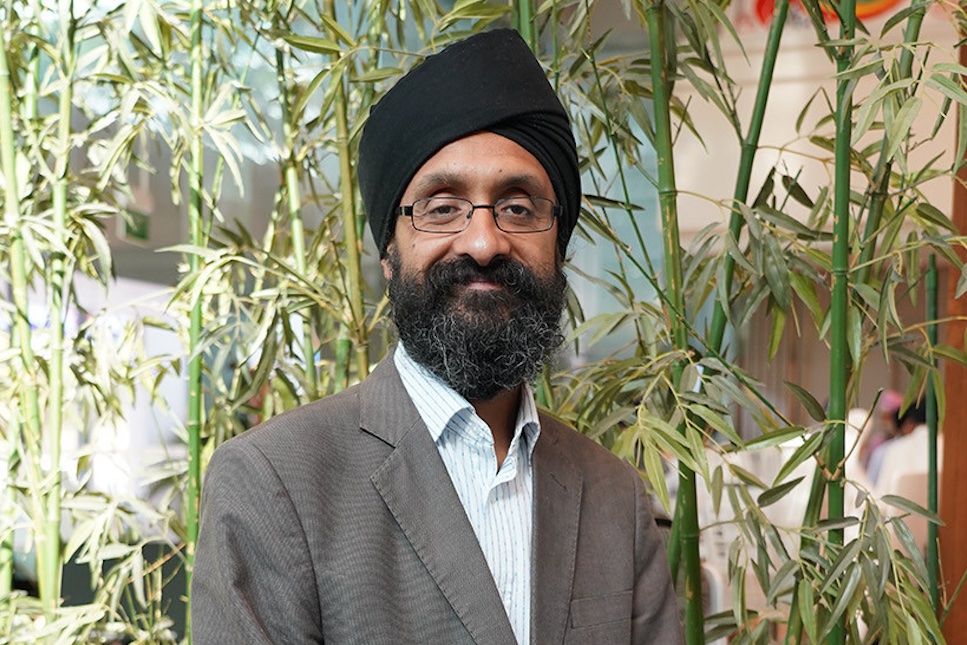
Key points in this episode, hosted by Associate Professor Rajesh Rai (Head of NUS South Asian Studies):-
1:00 Discovering and entering the field of Sikh Studies
2:20 The nature of the Sikh community in Britain and the rest of the world
4:25 Current interests in research
7:45 The experience of teaching in Singapore
12:00 Engagement with the local Sikh community
14:45 Thoughts on the Chair, serving again, and the NUS South Asian Studies Programme
Educator: Associate Professor Peace Wong (NUS Social Work)
This year's recipient of Singapore's top accolade for her field – the Outstanding Social Worker Award – Associate Professor Peace Wong (NUS Social Work) discusses her path to becoming a dedicated social worker and decision to teach at her alma mater, the evolution of social work and her aspirations for her students, as well as the challenges of social work education and her outlook for the first batch of interdisciplinarily oriented social workers to graduate from the NUS College of Humanities and Sciences.
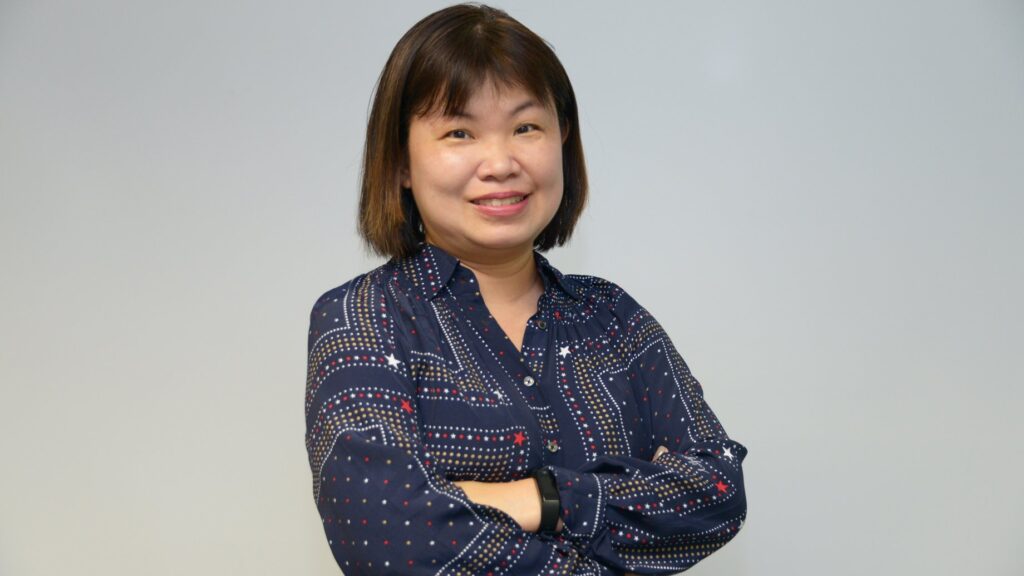
Key points in this episode, hosted by Associate Professor Robin Loon (NUS English, Linguistics and Theatre Studies):-
0:00 The practitioner and educator on the choice to build a career as a social worker and eventual return to NUS Social Work to teach.
5:40 About the evolution of social work through the years and the importance of a formal education in Social Work.
14:30 Values and capabilities that Social Work graduates must have today.
20:50 The importance of the 'Self' to a social worker, and the mission to help social work students to discover his or her 'Self'.
34:00 Educational innovations in the discipline of social work.
46:15 Major challenges facing the Social Work educator and the outlook for new graduates in the field.
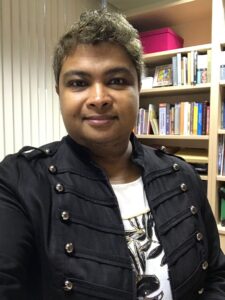 Educator: Associate Professor Kamalini Ramdas (NUS Geography)
Educator: Associate Professor Kamalini Ramdas (NUS Geography)
In this first episode of Educator Series of podcasts, Dr Robin Loon (NUS English, Linguistics and Theatre Studies) chats with Associate Professor Kamalini Ramdas (Kamal), Senior Lecturer (NUS Geography) on her journey as an educator.
Taking us through her beginnings as an undergraduate majoring in Geography to her return to academia from the private sector, Kamal shares her approach to education and her vision of what an education in Geography can be.
0:00 The Journey to Becoming an Educator
In this segment, Kamal talks through her experiences from being a Geography graduate to working in the private sector and then returning to academia and becoming an educator. She reveals how she has benefitted from an education in Geography and its relevance to modern living.
15:46 Geography and Understanding Space
In the second segment, Kamal further explains what an education in Geography affords the graduate and their entry into the workforce. It is about “understanding space in an embodied and affective way.”
29:09 Education Values – Feminist Pedagogy and the Flat Classroom
In this third segment, Kamal clarifies her alignment and adaptation of Feminist Pedagogies into her teaching; and her belief in the efficacy of a ‘flat classroom structure’.
1:03:14 Innovation and the Way Ahead
In the final segment, Kamal and Robin discuss how educators can develop their research and deepen their impact through educational innovations.
Alumni Series
 Alumna: Shirley Wang (NUS Theatre Studies and NUS Innovation & Design Programme (IDP)
Alumna: Shirley Wang (NUS Theatre Studies and NUS Innovation & Design Programme (IDP)
FASS Alumna Shirley Wang (NUS Theatre Studies and NUS Innovation & Design Programme (IDP) '21) discusses the interdisciplinary path she has taken all through school and now in her career, with Associate Professor Robin Loon (NUS Theatre Studies). Shirley is notable for her ability to thrive academically and professionally in STEM as well as the Humanities. While taking the IDP at NUS Engineering (now NUS College of Design and Engineering), she was part of a four-person undergraduate team behind a winning collaboration with Sengkang General Hospital called Ah Bot — a moving robot built to keep elderly people company and help watch out after them. She is currently an Associate Consultant with management consultancy Capgemini Invent.
Key Points in this Episode
0:00 What led to the pursuit of Theatre Studies — academic life before NUS and the first year in university.
33:16 About the Theatre Studies major at NUS — the biggest takeaways from the programme and how it shapes one's worldview and approach to a future career.
1:01:02 The Next Step — realising the practical and professional relevance of being both qualified in Theatre Studies as well as Innovation and Design, to the real world.
Alumna: Sneha Sanjay (Theatre Studies and Business Management, '21)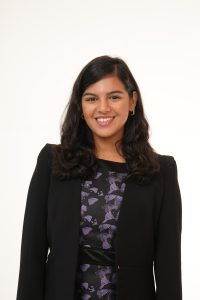
Associate Professor Robin Loon (NUS English, Linguistics and Theatre Studies) speaks with Sneha Sanjay, an Offshore Wealth Management Associate at Citi and a driven entrepreneur competent in both creative, analytical and interpersonal capacities. She graduated with a First Class Honours from NUS with a double major in Theatre and Business. Sneha shares her experiences, vision and plans for the future int his interview.
0:00 Introduction and Account of Pre-NUS Life
Sneha tells us about her choice of subjects at school before university and her initial thoughts about which directions she was headed with her studies.
12:56 The NUS Journey
Sneha details the reasons for her choice of majors at NUS – Business and Theatre – and her expectations of each programme at the start. She also shares thoughts on how they have shaped her and guided her career choices. In particular, she elaborates on her journey as a Theatre Studies major and how it has transformed her intellect, shaped her worldview and opened her eyes further to the career possibilities in her future.
32:18 Current Occupations and Future Plans
Sneha relates how she is going about pursuing her career aspirations after graduation, and tells of how she hopes to debunk the misleading belief that a major in Theatre Studies has no practical and professional relevance beyond its preparation of graduates to fill the role of 'theatre practitioner'.